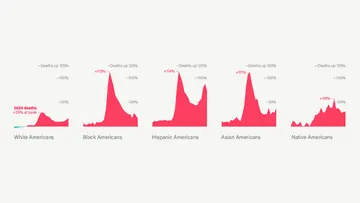New York’s prison system just banned something unusual from the outside: fresh fruits and veggies. As of this month, care packages sent to some inmates must come through private companies — no more parcels with food and goodies sent from home.
The state has entered the big business of prisoner care packages, joining the ranks of the hundreds of other local and state corrections agencies using private companies for the service. Instead of heading to a local convenience or grocery store to find gifts, loved ones have to choose from a selection of pre-approved items in the companies’ catalogs.
The change went into effect this month at three facilities in a pilot program, Greene, Taconic and Green Haven Correctional Facilities. But the state plans to expand to the whole system — the fourth largest in the nation — by the fall.
The prison system says the switch will significantly reduce contraband, such as drugs or weapons, from getting into facilities, making them safer for inmates and staff. The state Department of Corrections and Community Supervision would not say if there have been particular incidents that provoked the change. Although many corrections departments take a cut of the profits in these deals, New York is not receiving a commission from the companies.
There are three exceptions to the new rule: wedding rings worth less than $150; clothes for a prisoner to wear when he or she is released; and non-electrical instruments can all be sent straight from home. Any other items not sent through the approved companies will be considered contraband and returned to the sender or discarded, including books.
The approved vendors are well-established in the corrections industry: Access Securepak, E-Ford Commissary, Union Supply Group, Jack L. Marcus Company and Walkenhorst. Each company says it makes sending care packages simpler and less stressful since all offered items have been pre-approved.
But advocates say private package companies make the process unnecessarily difficult and expensive. Caroline Hsu, a staff attorney with the Prisoners’ Rights Project of the Legal Aid Society, says the companies’ prices for simple things such as rice or Oreos can be much higher than those at local stores. For those with no credit card or internet at home, using the online catalogs can be near-impossible.
Under the new rule, an inmate can receive at most six packages a month — three ordered by loved ones, and three ordered directly by the inmate. Each package can’t weigh more than 30 pounds, and the total weight of food within the package has to be less than 8 pounds. That’s a maximum of 16 pounds of food a month — less than half of what was allowed under the old rules. Loved ones were also able to bring food with them during a visit, to supplement prison meals.
Packages are critical, especially for those who don’t eat the prison food, says Jack Beck, director of the Prison Visiting Project run by the Correctional Association of New York, a nonprofit with authority to inspect state prisons. “Some people prepare all their food based on the contents of packages they receive,” he said.
Most contraband can be prevented if correctional officers do an adequate job of inspecting packages, Beck says. “It’s not an insurmountable issue,” he said.
Even with the more restricted rule, staffers have to take an additional step: a package must be inspected in front of the inmate. If anything raises a red flag, officers can open an item and take a closer look. If an item does not pass inspection, the inmate has to sign a special form, identifying the item and how he or she wants it to be disposed of.
For many advocates, the outcry against the program is about more than just catalog options and prices. “Packages and food are ways that people can find comfort to remind themselves that they’re human,” Hsu said. “Taking those away tells people they’re not worth anything.”
